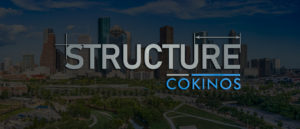COVID-19 White Paper for Commercial Loans

In response to the coronavirus disease (COVID-19), lenders around the country are taking steps to respond to the needs of borrowers directly affected by COVID-19. To aid our borrower clients, this article focuses on the potential for an event of default, as well as various talking points with lenders and potential ways to mitigate the economic hardship caused by COVID-19.
Lender Assistance
The impact of COVID-19 has resulted in many commercial loan borrowers asking lenders to defer or forgive installment payments. The American Bankers Association has compiled a list of publicly announced steps various banks have taken in response to COVID-19. Some of these steps include deferred payments, forbearance of payments, and waiver of fees.
Event of Default
While it is crucial for lenders to work with borrowers during the pandemic, it is very important for borrowers to remember to review their loan documents prior to or during discussions with their lender. The entirety of the loan documents are important, but one section in particular should be of concern, event of default. The event of default section of a loan agreement typically discusses certain events, circumstances, or conditions that constitute breaches or violations of the loan agreement and the rights and remedies of the lenders if any breach or violation occurs. One possible event of default that is at great risk of accidentally being triggered by the borrower in discussions with their lender, is the borrower’s inability to pay upcoming principal, interest, fees, and other non-principal amounts. In some loan documents, an event of default is triggered if the lender has reason to believe that the borrower cannot make future payments. Therefore, if a borrower contacts their lender and, in negotiations, asserts that they cannot make their next loan payment, such statement could indicate an event of default under the loan. Upon an event of default, lenders may have the right to:
- Accelerate and demand immediate repayment of all outstanding amounts owed to the lender.
- Exercise its rights against any collateral held by the lender in support of the loan.
- Sue the borrower for payment.
During discussions with lenders about potential options to mitigate the fallout of COVID-19, borrowers should avoid making statements that would trigger such an event of default. Borrowers should review their loan documents in order to craft relief requests and responses to lenders that allow for mutually beneficial discussions on how to resolve the issues that continue to arise due to COVID-19. Further, borrowers should begin discussions with their lenders well in advance, if at all possible, to becoming behind in loan payments as lenders typically are less likely to negotiate terms when a default has already occurred.
Potential Talking Points and Means of Mitigation
The potential solutions and mitigating options provided by lenders varies by institution and an individual borrower’s circumstances. In the event that a lender is willing to work with a borrower to mitigate the impact of COVID-19, a borrower should consider the following potential solutions or mitigating options:
- Reduced interest rates.
- Reduced or deferred amortization.
- Reduced, deferred, or waived payments (principal only, interest only, or principal and interest)
- Discounted loan payoff
- Forbearance agreements
- Amendment of current loan documents
The information provided herein is not intended to fully address all issues and solutions in connection with commercial loans and COVID-19, but instead represent some of the ways our team has been able to assist clients in negotiating with their lenders. Borrowers should contact STRUCTURE Cokinos, the transactional team of Cokinos | Young (principal office in Houston, Texas) led by Tiffany Melchers, with any questions or concerns related to their commercial borrowing needs.
